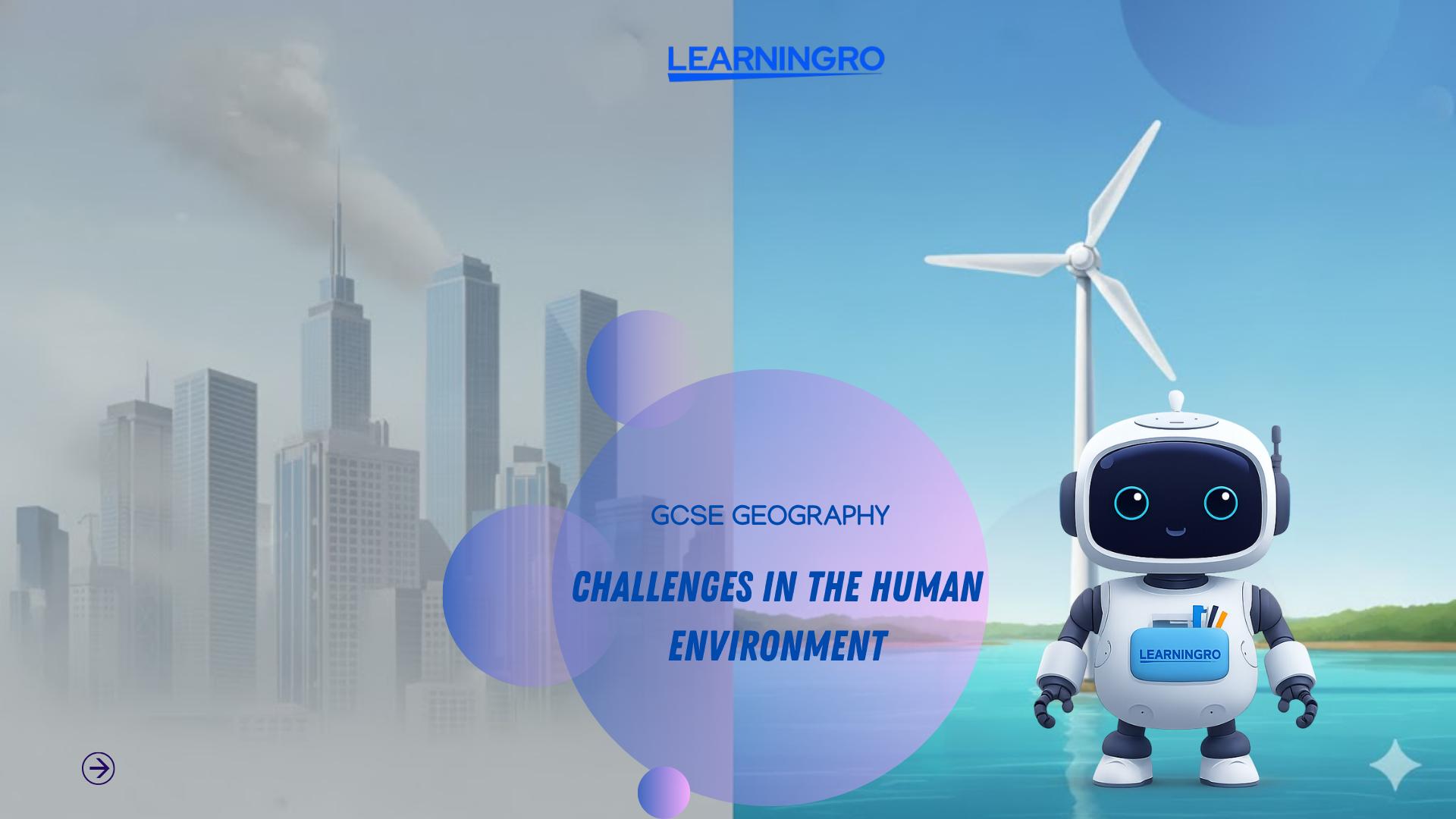RoTutor
LearningRO AI Assistant

This comprehensive course explores the critical and dynamic relationship between human populations and the natural world. Designed to cover core geographical concepts, this module will equip you with the knowledge to understand the major environmental and societal challenges of the 21st century and evaluate the most effective solutions.
We break down complex global issues into five manageable modules, balancing problem identification with sustainable solutions:
The Urban Future: Analyze the rapid growth of mega-cities, comparing the causes (rural-to-urban migration) and consequences ( slums, congestion). You’ll evaluate solutions ranging from self-help schemes to large-scale infrastructure projects.
Resource Management: Investigate the global pressures on fundamental resources. We define water stress and the water footprint, and compare the costs and benefits of different energy sources, including the concept of the circular economy.
Food Security: Move beyond simple availability to explore the four pillars of food security. You’ll assess the environmental problems of intensive farming (e.g., eutrophication, soil degradation) and evaluate sustainable alternatives like permaculture and fair trade.
Physical Risks: Study how human activity interacts with natural hazards. This includes managing risk in tectonically active zones and understanding the formation and mitigation strategies for severe weather like tropical storms. We also cover the difference between climate change mitigation and adaptation.
Environmental Degradation: Examine the impacts of air pollution (smog, urban heat island effect) and waste management strategies across the globe, concluding with the importance of conserving global biodiversity in fragile ecosystems.
LearningRO AI Assistant

LearningRO AI Assistant